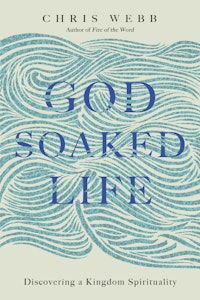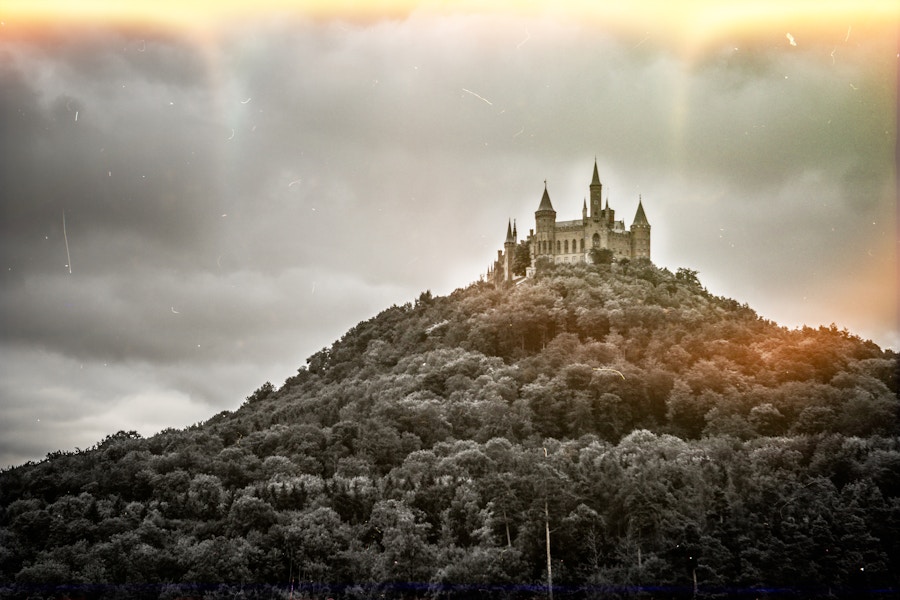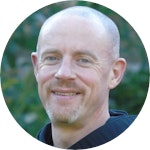 Excerpt from God-Soaked Life
Excerpt from God-Soaked Life
Everything God has done from the moment of creation, and everything God will do until the end of time, is focused on the formation of a magnificent, all-encompassing God-soaked loving community. Everything. It is his sole focus, his passion, his obsession.
Heralded by Jesus
It’s no surprise, then, to discover that when Jesus begins preaching openly in Galilee, his message begins with the announcement of God-soaked community: “The time is fulfilled, and the kingdom of God has come near” (Mark 1:15). In all Jesus’ teaching and preaching God’s community of love, the kingdom of God was a constantly recurring theme.
Jesus spent his time traveling from town to town in order to preach the kingdom (Luke 4:43), and he later sent out his followers on the same mission: “to proclaim the kingdom of God and to heal” (Luke 9:2). He taught his disciples that he had given them the secrets of the kingdom (Luke 8:10) and that they should pray for its realization among them: “[may] your kingdom come” (Matthew 6:10).
He told stories about the nature of the kingdom, comparing it to a tiny seed that grew unexpectedly into a great plant (Matthew 13:31 – 32), a treasure hoard discovered buried in a field (Matthew 13:44), a fishing net that sweeps up people from around the world (Matthew 13:47 – 50), and so much more. (These three examples are from just one chapter of a single Gospel!)
He argued that his miracles revealed that already “the kingdom of God has come to you” (Luke 11:20) and that people should seek this kingdom above all else in this world (Matthew 6:33). When he was put on trial and executed by the Roman and Jewish authorities, it wasn’t for the religious crime of heresy, but the social and political crime of sedition: he was crucified for announcing a new kingdom, a rival social order to that of Rome (John 18:33 – 37). The kingdom, God’s loving community, was so much the heart of Jesus’ teaching, preaching, and mission that ultimately it became the cause for which he was willing to be betrayed and killed.
Living Kingdoms
It’s easy for us, living in a very different world from that of first-century Palestine, to misunderstand all this talk about the “kingdom.” There’s something archaic about the language; we might picture territorial lines drawn on some parchment map being pored over by armored knights while their steely-eyed monarch watches from his magnificent throne. Kingdoms seem to have more to do with Arthurian jousting or Tolkien’s elves than with our contemporary world of polling booths and global commerce.
Like just under a tenth of the world’s population, though, I grew up (and still live) in a modern kingdom —in my case, the United Kingdom of Great Britain and Northern Ireland. I remember the street party we held, when I was a young boy, to celebrate Queen Elizabeth’s Silver Jubilee; we hung bunting from the lampposts and laid out trestle tables groaning with food along the length of the road under a bright summer sun. As a boy scout I renewed my oath every week to “do my best, to do my duty to God and the Queen, and to help other people.” My father and stepfather served in Her Majesty’s Royal Navy doing their bit “for Queen and country.” To this day we Brits send letters in the Royal Mail, licking and sticking stamps adorned with the monarch’s head onto the corner of the envelope; we pay taxes to Her Majesty’s government; we buy pastries and coffee in the local cafe using coins and notes issued by the Royal Mint imprinted with the Queen’s image. Reminders that we live in this kingdom surround us everywhere we look.
But for most of us, most of the time, all this is only tangentially about power and authority, or territory and maps. The kingdom I belong to is, above all, a community of people: my family and loved ones, my friends and neighbors, my colleagues and acquaintances, and the millions of fellow citizens whose lives are more distantly connected with mine. The monarch is perhaps best understood less as a ruler and more as a symbol of this huge society and all it represents. Her Majesty’s government regulates the community, her armed forces protect it, the Royal Mail helps to keep it connected. But it’s the people who make it. Sure, we have what Winston Churchill called “this sceptred isle” on which we spend most of our time, but even the land isn’t the kingdom: when I travel abroad, I’m still a subject and citizen, still connected to my people and community. The United Kingdom is who we are together, not where we live.
This is the kind of kingdom Jesus proclaimed; this is what God had in mind from the very first moment of creation: community. A God-soaked community of people whose lives are defined not by territories and authorities, by shifting allegiances to political systems and philosophies, but by deep bonds of love to one another and to their Creator. Rulers and nations come and go. The poet Shelley, in his great poem “Ozymandias,” describes a vast monument to a forgotten dictator in the Middle East carrying a hubristic inscription:
My name is Ozymandias, king of kings:
Look on my works, ye Mighty, and despair!”
Nothing beside remains. Round the decay
Of that colossal wreck, boundless and bare
The lone and level sands stretch far away.
The mightiest cities will one day crumble, and the most noble societies will pass. But God’s purpose remains steadfast and cannot be frustrated. God, whose presence fills all creation, is calling people to life in a community built on eternal foundations. He is calling you.
— Taken from chapter one, “The Invitation”
Excerpted from God-Soaked Life by Chris Webb, Intervarsity Press, 2017. Used with permission.
Text First Published September 2017 · Last Featured on Renovare.org September 2022


